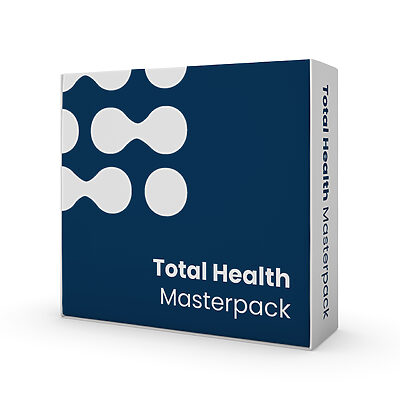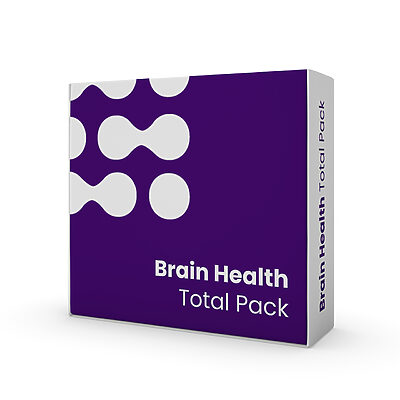
What Is CBG Oil?
If you’re looking for a comprehensive, natural solution to tackle inflammation and its debilitating effects, you’re in the right place. Welcome to the new era

Magnesium glycinate is a type of magnesium supplement that is well-tolerated by the digestive system and has good bioavailability, making it a popular choice for those seeking to increase their magnesium intake but have some asking what is the best time to take magnesium. Magnesium is a crucial mineral that plays a vital role in numerous physiological processes, such as supporting healthy muscle and nerve function, maintaining a healthy heartbeat, and promoting strong bones. Recently, magnesium, specifically magnesium glycinate supplements, has become increasingly popular among those trying to improve their health.
Magnesium glycinate has a slower absorption rate than other magnesium supplements, making it a great option for those who want a gentler supplement. This slower absorption rate is due to the glycine component, which helps transport the magnesium through the digestive system and into the bloodstream. However, this slower absorption rate should be considered when deciding when to take magnesium glycinate. Taking it with food can help improve absorption, while taking it on an empty stomach may result in less efficient utilization of the supplement. Additionally, dividing the daily dose into smaller, more frequent amounts can help maintain consistent levels of magnesium in the body throughout the day.
Personal tolerance levels are crucial in determining the best time to take magnesium glycinate. Some individuals may experience digestive discomfort or other symptoms if they take magnesium glycinate on an empty stomach or in large doses. On the other hand, some individuals may find that they are able to tolerate larger doses without any issues. It is up to each person to determine what dose is appropriate for them. It is important to start with a low dose and gradually increase as tolerated.
Magnesium glycinate is recommended to be taken with food. The consumption of food and water along with magnesium glycinate can help eliminate any digestive issues that may arise from its consumption and enhance its absorption in the body. Taking magnesium glycinate with food can ensure that you receive the maximum benefits from this supplement.
Dividing your daily dose of magnesium into smaller, more frequent amounts can also help reduce any digestive discomfort and ensure consistent levels of magnesium in the body throughout the day. This approach can be particularly useful for those who experience digestive issues when taking large doses of supplements all at once. By dividing the daily dose into smaller amounts and taking them at regular intervals, one can ensure that their body receives a steady supply of magnesium, which can help to improve its overall effectiveness. Additionally, this approach can also help to minimize any side effects that may be associated with taking high doses of magnesium supplements. While there are not a ton of side effects reported while taking magnesium glycinate, each person is different and will have to figure out the exact dosage for themselves.
By taking magnesium glycinate before bed, individuals can improve their overall sleep quality, support muscle health, and reduce the likelihood of experiencing digestive discomfort. Taking magnesium glycinate before bed can be a helpful addition to one’s bedtime routine, especially for individuals looking to improve their sleep and overall health.
Magnesium glycinate is also considered effective before bed because it is easily absorbed by the body and does not cause digestive upset. Magnesium is an important mineral that helps regulate sleep, so taking magnesium glycinate before bed may aid in falling asleep and staying asleep. It also helps relax the muscles, which can reduce restlessness and discomfort. Additionally, magnesium glycinate has been shown to have a calming effect on the nervous system, which may lead to a more restful night’s sleep. Overall, taking magnesium glycinate before bed may provide several benefits for sleep quality and relaxation.
Magnesium glycinate is a highly absorbable form of magnesium that can offer a range of benefits to individuals who are looking to increase their magnesium intake. From reducing digestive discomfort and improving absorption to supporting healthy sleep patterns and muscle health, magnesium glycinate can positively impact various aspects of health and wellness. Additionally, its well-tolerated nature makes it a suitable option for individuals who are sensitive to other forms of magnesium supplements. Whether taken with food or before bed, magnesium glycinate can be a helpful addition to one’s supplement routine for those looking to support their overall health and well-being.
However, the best time to take magnesium glycinate can vary based on individual needs and conditions, so it is important to consult with a healthcare professional or nutritionist for personalized recommendations. USA Medical magnesium glycinate is one of the best magnesium supplements on the market due to it’s high bioavailability and ease on the body. We want to ensure you have the best supplements possible with the highest quality ingredients to ensure satisfaction and a healthier life with every dose.
Works Cited
“Magnesium: Physiology and Metabolism.” NCBI PMC, U.S. National Library of Medicine, www.ncbi.nlm.nih.gov/pmc/articles/PMC6316205/.
“Magnesium: Its Role and Potential Therapeutic Benefits.” NCBI PMC, U.S. National Library of Medicine, www.ncbi.nlm.nih.gov/pmc/articles/PMC5926493/.
These statements have not been evaluated by the Food and Drug Administration. These products/services are not intended to diagnose, treat, cure, or prevent any disease.

If you’re looking for a comprehensive, natural solution to tackle inflammation and its debilitating effects, you’re in the right place. Welcome to the new era

The Invisible Enemy Within You wake up feeling groggy, your joints ache, and that old neck pain seems to have returned. No, it’s not just

CBG oil has been creating waves in the health and wellness industry, and for good reasons. But with any health trend, it’s crucial to separate

In stock | Free shipping

In stock | Free shipping

In stock | Free shipping

In stock | Free shipping

In stock | Free shipping

In stock | Free shipping

In stock | Free shipping

FREE SHIPPING & DELIVERY INSURANCE
Enjoy free ground shipping and free delivery insurance on all orders! Spend $150+ to unlock free 2-Day Air shipping.

24/7 EXPERT SUPPORT
Text (323) 352-9131 anytime for help from one of our USA Medical experts. We’re here for you!

Get your first-time coupon!
This coupon has no restrictions on your first purchase, you can use it for anything at USA Medical!

Join the USA Medical Family!
Get access to exclusive offers and free giveaways in our private Facebook group.
These statements have not been evaluated by the Food and Drug Administration. USA Medical products are not intended to diagnose, treat, cure, or prevent any diseases. Individual results may vary.
This site is protected by reCAPTCHA and the Google Privacy Policy & Terms of Service apply.
© USA Medical, 2025. All rights reserved.

In stock | Free shipping

In stock | Free shipping

In stock | Free shipping

In stock | Free shipping

In stock | Free shipping

In stock | Free shipping

In stock | Free shipping

In stock | Free shipping